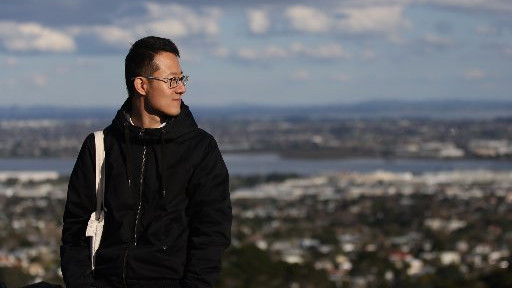This gay lecturer almost lost his entire career for daring to come out and teach that queer people exist

Cui Le (Twitter)
A gay lecturer from China has revealed that his academic career was left in tatters in his home country after he hosted classes on sexuality.
Cui Le was a linguistics lecturer at the Guangdong University of Foreign Studies in the southern Chinese province of Guangzhou when the backlash began, the South China Morning Post reports.
In August 2015, a student at another Chinese university sued the country’s education ministry over a textbook that described homosexuality as a disease – but her life was plunged into uncertainty when a school counsellor outed her to her parents.
Cui Le, along with many others in China’s LGBT+ community, was outraged by the incident.
Gay lecturer was warned in China to back away from his LGBT+ themed lectures.
Up until then, he had kept his sexuality a secret within his workplace – but the student’s outing prompted him to come out publicly.
He then invited activists to give guest lectures at the university on sexuality and gender – but that move did not end well for Cui.
While students “loved” the guest lectures and branded them “enlightening”, the university’s administration did not agree.
It’s convenient for them to use administrative means to oppress identities and behaviours that are not in line with the mainstream.
He was warned by two vice-deans that LGBT+ topics must not be discussed in lectures, with both insisting that the university’s reputation would be damaged by his actions.
Ultimately, the university forced him to give a written guarantee that he would stop hosting guest lectures on LGBT+ issues and he was penalised financially over his activism.
He quit his job and moved to New Zealand following the incident.
He continued working at that university until 2017, but enough was enough. That year, Cui quit his job and moved to New Zealand to start afresh in a country where his academic freedom would be better respected.
“China’s administrative system is an important tool for the government to ensure stability and higher education institutes are an important link,” he told the South China Morning Post.
“It’s convenient for them to use administrative means to oppress identities and behaviours that are not in line with the mainstream.”
Since then, he has spoken to more than 40 gay lecturers in China who have had similar experiences, and found that most had made sacrifices in order to keep their jobs.

